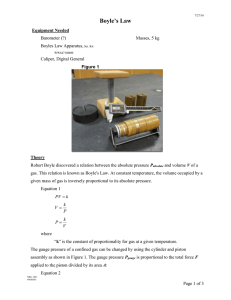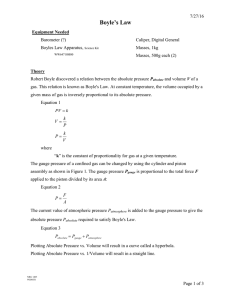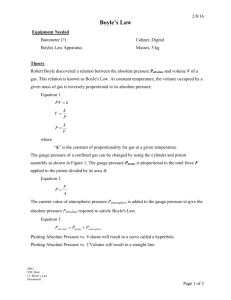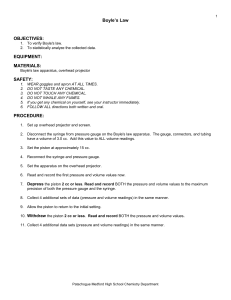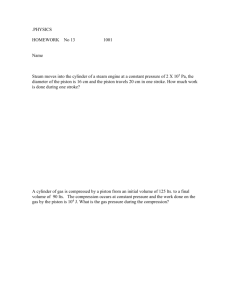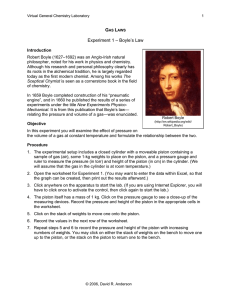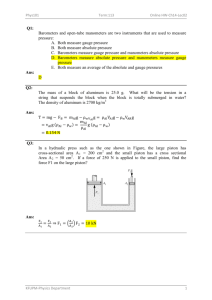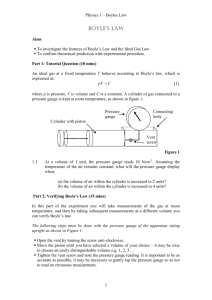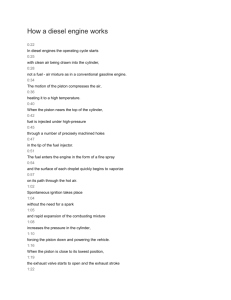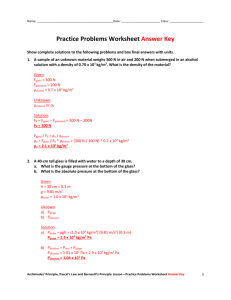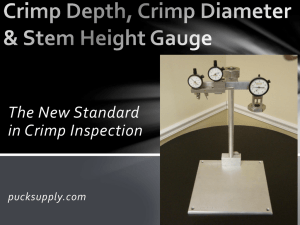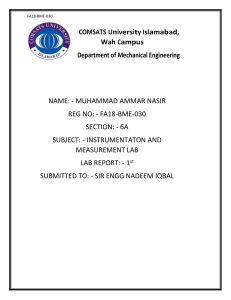PHYS04 Boyle`s Law
advertisement
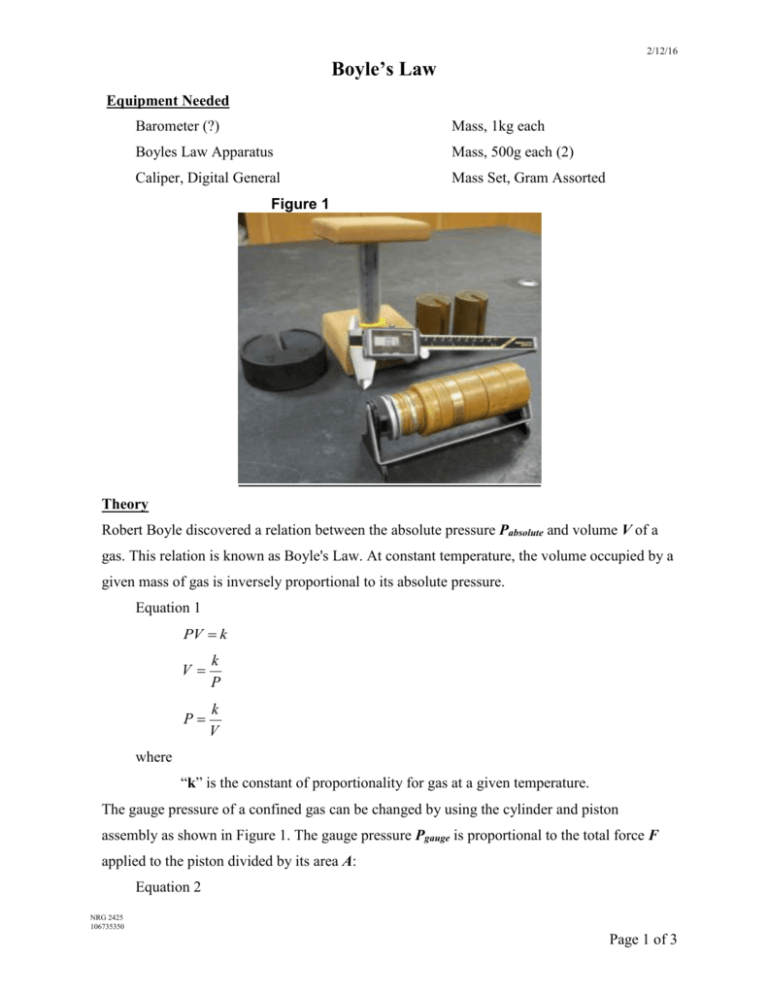
2/12/16 Boyle’s Law Equipment Needed Barometer (?) Mass, 1kg each Boyles Law Apparatus Mass, 500g each (2) Caliper, Digital General Mass Set, Gram Assorted Figure 1 Theory Robert Boyle discovered a relation between the absolute pressure Pabsolute and volume V of a gas. This relation is known as Boyle's Law. At constant temperature, the volume occupied by a given mass of gas is inversely proportional to its absolute pressure. Equation 1 PV k V k P P k V where “k” is the constant of proportionality for gas at a given temperature. The gauge pressure of a confined gas can be changed by using the cylinder and piston assembly as shown in Figure 1. The gauge pressure Pgauge is proportional to the total force F applied to the piston divided by its area A: Equation 2 NRG 2425 106735350 Page 1 of 3 2/12/16 P F A The current value of atmospheric pressure Patmosphere is added to the gauge pressure to give the absolute pressure Pabsolute required to satisfy Boyle's Law. Equation 3 Pabsolute Pgauge Patmosphere Plotting Absolute Pressure vs. Volume will result in a curve called a hyperbola. Plotting Absolute Pressure vs. 1/Volume will result in a straight line. Procedure 1. Mount the syringe in the cylinder holder as shown in Figure 1. Adjust the piston ¼ down the cylinder by releasing air from the rubber tip. The graduations on the cylinder indicate the actual volume in cm3 at the position of the piston. Add mass to the platform, one kilogram at a time. Record the volume each time mass is added. 2. Complete Data Table 1 with the measurements of force, area, pressure, volume and 1/volume. The applied force is: F Mg where M is mass on the piston and g 9.79 m s2 3. Plot Pressure versus Volume and Pressure versus 1/Volume as illustrated in Figure 2. NRG 2425 106735350 Page 2 of 3 2/12/16 DATA TABLE 1 Patmosphere (barometer): ________ Pa To go from Multiply by To get kPa 7.5006 mm of Hg mm of Hg 0.13332 kPa Diameter of Inner Barrel:________ m Added Force Area 2 Mass, M*9.79 m/s (from above) M (kg) (N) (m2) Area of Inner Barrel: D2/ 4: ________m2 Gauge Pressure (Force / Area) Absolute Pressure: Volume 1/Volume (cm3) (cm-3) (gauge pressure + atmospheric pressure) (Pa) (Pa) Do you get a curve when you plot Pressure vs. Volume? Do you get a straight line when you plot Pressure vs. 1/Volume? NRG 2425 106735350 Page 3 of 3
